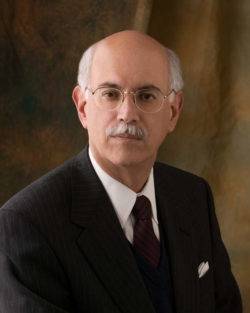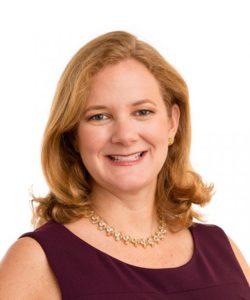CANCELLED: Pandemic Preparedness, Improved Health Security and Biodefense
January 10th, 2019 12:00PM -1:30PM
This event has been cancelled. Please contact us at wac@world-affairs.org with any questions.
The United States remains dangerously vulnerable to biological threats whether from natural outbreaks of disease, accidents involving high consequence pathogens, or the actions of terrorists or state actors. The U.S. government’s increased attention to health security has led to the recent release of the National Biodefense Strategy, which is a good step forward. What is this strategy and what role does it play in the international community? How can we improve our national and international health security and biodefense? Join the World Affairs Council and the Scowcroft Institute of International Affairs, Bush School of Government and Public Service at Texas A&M University for a panel discussion with Andrew Natsios, former USAID Administrator and Director of the Scowcroft Institute of International Affairs; Dr. Gerald Parker, Senior Fellow for the Pandemic and Biosecurity Policy Programs; and Dr. Christine Blackburn, Assistant Research Scientist at Texas A&M University on pandemic preparedness, biodefense, and why increased emphasis on international health security is essential to prevent an outbreak anywhere from becoming a major epidemic or pandemic.
Lunch will be provided.
About the Speaker
 Andrew S. Natsios is the Director of the Scowcroft Institute of International Affairs and Executive Professor, Texas A&M University, Bush School of Government and Public Service. Andrew S. Natsios is an Executive Professor at the Bush School and Director of The Scowcroft Institute of International Affairs. Natsios was most recently a Distinguished Professor in the Practice of Diplomacy at the Walsh School of Foreign Service at Georgetown University and former Administrator of the U.S Agency for International Development (USAID). As USAID Administrator from 2001-2006, Natsios managed reconstruction programs in Afghanistan, Iraq, and Sudan. He also served as U.S Special Envoy to Sudan in 2006-2007. Retired from the US Army Reserves at the rank of lieutenant colonel after twenty-three years, Natsios is a veteran of the Gulf War. From 1993 to 1998, he was Vice President of World Vision U.S, the largest faith-based nongovernmental organization in the world, with programs in 103 countries. Earlier in his career, Natsios served in the Massachusetts House of Representatives for twelve years and as the chief financial and administrative officer of the Commonwealth of Massachusetts. He also served as the CEO of Boston's Big Dig, the largest construction project in American history, after a cost overrun scandal. He is the author of three books: U.S. Foreign Policy and the Four Horsemen of the Apocalypse (1997); The Great North Korean Famine (2001); and his latest book, Sudan, South Sudan and Darfur: What Everyone Needs to Know, published in 2012 by Oxford University Press. He has contributed to thirteen other books. He has published numerous articles in Foreign Affairs, the New York Times, Washington Post, Washington Quarterly, Foreign Service Journal, and Wall Street Journal.
Andrew S. Natsios is the Director of the Scowcroft Institute of International Affairs and Executive Professor, Texas A&M University, Bush School of Government and Public Service. Andrew S. Natsios is an Executive Professor at the Bush School and Director of The Scowcroft Institute of International Affairs. Natsios was most recently a Distinguished Professor in the Practice of Diplomacy at the Walsh School of Foreign Service at Georgetown University and former Administrator of the U.S Agency for International Development (USAID). As USAID Administrator from 2001-2006, Natsios managed reconstruction programs in Afghanistan, Iraq, and Sudan. He also served as U.S Special Envoy to Sudan in 2006-2007. Retired from the US Army Reserves at the rank of lieutenant colonel after twenty-three years, Natsios is a veteran of the Gulf War. From 1993 to 1998, he was Vice President of World Vision U.S, the largest faith-based nongovernmental organization in the world, with programs in 103 countries. Earlier in his career, Natsios served in the Massachusetts House of Representatives for twelve years and as the chief financial and administrative officer of the Commonwealth of Massachusetts. He also served as the CEO of Boston's Big Dig, the largest construction project in American history, after a cost overrun scandal. He is the author of three books: U.S. Foreign Policy and the Four Horsemen of the Apocalypse (1997); The Great North Korean Famine (2001); and his latest book, Sudan, South Sudan and Darfur: What Everyone Needs to Know, published in 2012 by Oxford University Press. He has contributed to thirteen other books. He has published numerous articles in Foreign Affairs, the New York Times, Washington Post, Washington Quarterly, Foreign Service Journal, and Wall Street Journal.
About the Panelists
 Gerald W. Parker Jr., DVM, PhD Dr. Parker is a Senior Fellow for the Pandemic and Biosecurity Policy Programs at the Scowcroft Institute of International Affairs, Bush School of Government and Public Service; Associate Dean for Global One Health, Texas A&M College of Veterinary Medicine; and Strategic Advisor for the Institute for Infectious Animal Diseases at Texas A&M AgriLife Research. Dr. Parker also serves on several advisory boards, including the National Academies of Sciences, Engineering, and Medicine standing committee on Health Threats and Workforce Resilience; the FEMA National Advisory Council; the Homeland Security Science and Technology Advisory Committee; the Biodefense Blue Ribbon Panel; and the Texas Task Force on Emerging Infectious Disease Preparedness and Response.
Gerald W. Parker Jr., DVM, PhD Dr. Parker is a Senior Fellow for the Pandemic and Biosecurity Policy Programs at the Scowcroft Institute of International Affairs, Bush School of Government and Public Service; Associate Dean for Global One Health, Texas A&M College of Veterinary Medicine; and Strategic Advisor for the Institute for Infectious Animal Diseases at Texas A&M AgriLife Research. Dr. Parker also serves on several advisory boards, including the National Academies of Sciences, Engineering, and Medicine standing committee on Health Threats and Workforce Resilience; the FEMA National Advisory Council; the Homeland Security Science and Technology Advisory Committee; the Biodefense Blue Ribbon Panel; and the Texas Task Force on Emerging Infectious Disease Preparedness and Response.
Prior to his appointment to Texas A&M University, Dr. Parker held technical to executive leadership positions throughout thirty-six years of public service as a recognized defense and civilian interagency leader in biodefense, high consequence emerging infectious diseases, global health security, and all-hazards public health/medical preparedness. This includes coordinating federal medical and public health responses to Hurricanes Katrina through Alex, the 2009 Pandemic, and the Haiti earthquake. Dr. Parker’s service includes more than twenty-six years on active duty, leading medical research and development programs and organizations. He is a former Commander and Deputy Commander, US Army Medical Research Institute of Infectious Diseases. Dr. Parker held senior executive-level positions at the Department of Homeland Security, the Department of Health and Human Services (HHS), and the Department of Defense (DOD), including serving as the Principal Deputy Assistant Secretary for Preparedness and Response at HHS and Deputy Assistant Secretary of Defense for Chemical and Biological Defense at DOD. Dr. Parker is a 2009 recipient of the Distinguished Executive Presidential Rank Award and a 2013 recipient of the Secretary of Defense Medal for Meritorious Civilian Service. Dr. Parker graduated from Texas A&M’s College of Veterinary Medicine, Baylor College of Medicine Graduate School of Biomedical Sciences, and the Industrial College of the Armed Forces.
 Dr. Christine Crudo Blackburn is currently a postdoctoral researcher with The Scowcroft Institute for International Affairs in the Bush School of Government and Public Service at Texas A&M University conducting research on various aspects of pandemic disease policy and control. Previously, Dr. Blackburn received her PhD in 2015 from Washington State University as part of their Individual Interdisciplinary Doctoral Program. This program requires specialization in a minimum of three fields, of which Crudo chose Political Science, Communication, and Veterinary Clinical Sciences/Global Animal Health. For her doctoral work she constructed a mathematical model that allowed for quantified policy and communication inputs to determine how different disease intervention policies and communication strategies impacted the spread of disease outbreak. Following the completion of her doctoral degree, Blackburn worked as a postdoctoral researcher in the Field Disease Investigation Unit laboratory in the Washington State University Veterinary School of Medicine. During this appointment she worked on a variety of projects, including seasonal prevalence of E. coli bacterium in dairy and beef cattle, health differences between feeding dairy calves milk replacer rather than actual milk, and the impact of Bifidobacterium to the health development of dairy calves.
Dr. Christine Crudo Blackburn is currently a postdoctoral researcher with The Scowcroft Institute for International Affairs in the Bush School of Government and Public Service at Texas A&M University conducting research on various aspects of pandemic disease policy and control. Previously, Dr. Blackburn received her PhD in 2015 from Washington State University as part of their Individual Interdisciplinary Doctoral Program. This program requires specialization in a minimum of three fields, of which Crudo chose Political Science, Communication, and Veterinary Clinical Sciences/Global Animal Health. For her doctoral work she constructed a mathematical model that allowed for quantified policy and communication inputs to determine how different disease intervention policies and communication strategies impacted the spread of disease outbreak. Following the completion of her doctoral degree, Blackburn worked as a postdoctoral researcher in the Field Disease Investigation Unit laboratory in the Washington State University Veterinary School of Medicine. During this appointment she worked on a variety of projects, including seasonal prevalence of E. coli bacterium in dairy and beef cattle, health differences between feeding dairy calves milk replacer rather than actual milk, and the impact of Bifidobacterium to the health development of dairy calves.
About the Moderator

Gabrielle Fitzgerald is a global leader who believes that innovative approaches and catalytic coalitions are needed to solve the most challenging issues. Her focus is on designing and driving strategies that measurably impact people, organizations and countries.
Gabrielle is the founder and CEO of Panorama, an action tank dedicated to helping ambitious leaders solve global problems. For more than two decades, she has led teams and collaborated with partners to spark global change.
Prior to founding Panorama, she directed the $100 million Ebola Program at the Paul G. Allen Family Foundation, investing in creative approaches to combat the Ebola outbreak in West Africa. Gabrielle previously served as the director of Global Program Advocacy at the Bill & Melinda Gates Foundation, leading the team that advanced policy and advocacy agendas for the organization’s global issues. In 2014, she won the Gold Medallion award from Johns Hopkins Bloomberg School of Public Health’s Center for Communication Programs for her leadership on malaria.
Earlier in her career, Gabrielle led the public affairs strategy for HIV/AIDS at the U.S. Agency for International Development and served as the communications director for the U.S. Committee for Refugees. She also served as a speechwriter for President Clinton at The White House.
Gabrielle holds a Masters of Public Administration from the Maxwell School at Syracuse University and a bachelor of arts from American University in Washington, DC.